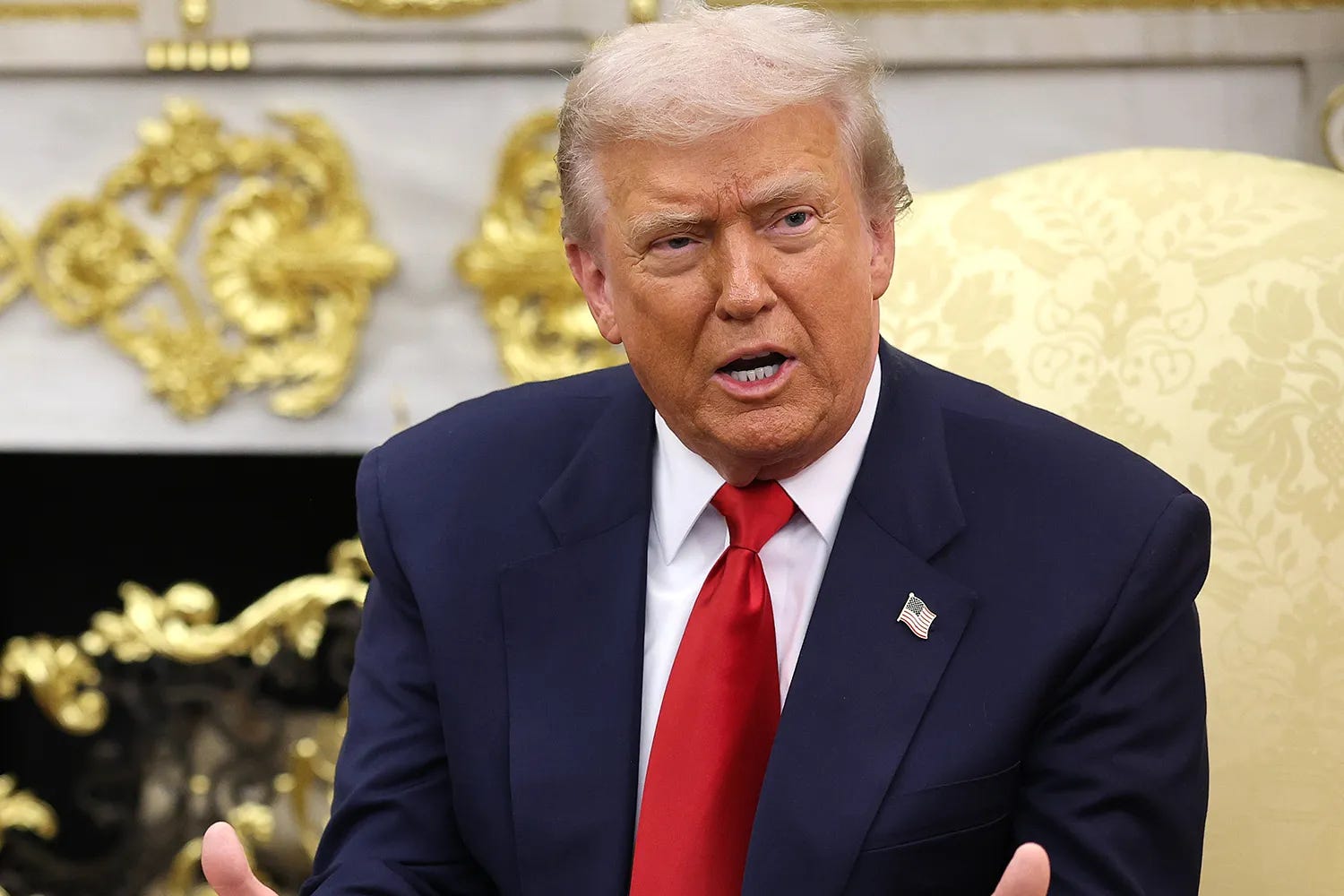Congress isolates Trump, moves fast to release Epstein files
Plus: New House calendar leaves room to avoid another government shutdown, House Dems move to block Trump’s Caribbean strikes and Senate Dems push repeal of the GOP’s $500,000 phone-record clause.

○ ● ● ● ● ● ● ● ● ●
FIRST THINGS FIRST
After months of stalled efforts and internal resistance, Congress moved with unusual speed on Tuesday to force the release of the Epstein files. The House approved a bipartisan bill in a 427–1 vote. Hours later, Senate Minority Leader Chuck Schumer (D-N.Y.) secured unanimous consent to pass it as soon as it reaches the Senate. The measure will then head to President Donald Trump’s desk, where he will lack the luxury of veto-proof margins in either chamber were he inclined to oppose it.
The outcome amounts to a sharp rebuke of Trump. For months, he has dismissed the discharge petition filed by Rep. Thomas Massie (R-Ky.) in partnership with Ro Khanna (D-Calif.)—the mechanism that forced the vote over House GOP leaders’ objections—as a Democratic hoax, even as he insisted the files contain no evidence of wrongdoing by him. The vote is also a major victory for the thousands of survivors of the sexual violence carried out by Epstein and his associates, who have pushed for full transparency for years.
It came alongside floor action on another significant measure: A resolution sponsored by Rep. Marie Gluesenkamp Perez (D-Wash.) formally disapproving of Rep. Jesus “Chuy” García (D-Ill.) for his recent decision to retire rather than seek re-election—a choice she argued was designed to clear the way for his chief of staff to succeed him.
Despite a firm whip effort from House Democratic leadership against the resolution—a member told Once Upon a Hill that the joint leadership statement House Minority Leader Hakeem Jeffries (D-N.Y.), House Minority Whip Katherine Clark (D-Mass.) and House Democratic Caucus Chair Pete Aguilar (D-Calif.) release this morning was on each member’s seat when they arrived to the weekly private caucus meeting—23 House Democrats joined almost all Republicans in passing it.
“Well, they’re going to have to speak for themselves in terms of articulating why they voted for the resolution that was on the floor,” Jeffries said moments after the vote of the almost two-dozen members who broke ranks.
The resolution has ignited mixed public reactions from colleagues, many of whom were on display during a heated floor debate between Gluesenkamp Perez and members who defended García’s decision.
“Chuy García is a very progressive voice of Congress,” Congressional Hispanic Caucus Chair Adriano Espaillat (D-N.Y.) told me this morning. “This is a guy with an enormous legacy that should not be tainted.”
The vote also threatens to corrode the unity Democrats say they’ll need heading into major legislative fights in the final weeks of the year and the 2026 cycle, as the party looks to reclaim the House. The surprise nature of the resolution also summoned quiet concern from some Democrats who fear internal disputes could become distractions.
Aguilar told me that, although leadership viewed the resolution as misguided, it was not discussed during caucus this morning.
“I always respect that members have different viewpoints on issues. That’s the difference between the Democratic Caucus and the Republican Conference: We’re a coalition. We’re a community. We’re not a cult,” the number-three House Democrat added. “We’re united. We’re focused. We also know that in 50 weeks, we’ve have a true test of where we are, and we need to keep our eye on that ball and make positive change for the American people. And that can only happen with true accountability and oversight that we would do when we are in the majority.”
Trump’s resistance to releasing the Epstein files stood in stark contrast to the pledge he made on the 2024 campaign trail, when he promised to make the documents public in response to fevered demands from the MAGA base. Many of his supporters believed the records would expose what they viewed as a sprawling, Democratic-run criminal operation—and they expected swift action once Trump returned to office and Pam Bondi was confirmed as attorney general. Instead, Bondi offered a series of inconsistent and sometimes false explanations about the existence of a “client list,” enraging the same activists who had driven the issue into the conservative mainstream. The temperature rose further when reporting from outlets like The Wall Street Journal indicated Trump’s associations with Epstein were deeper than he had previously acknowledged. For Trump’s backers, the logic was simple: if claims of wrongdoing were a hoax, full transparency should have been the fastest way to put the matter to rest.


